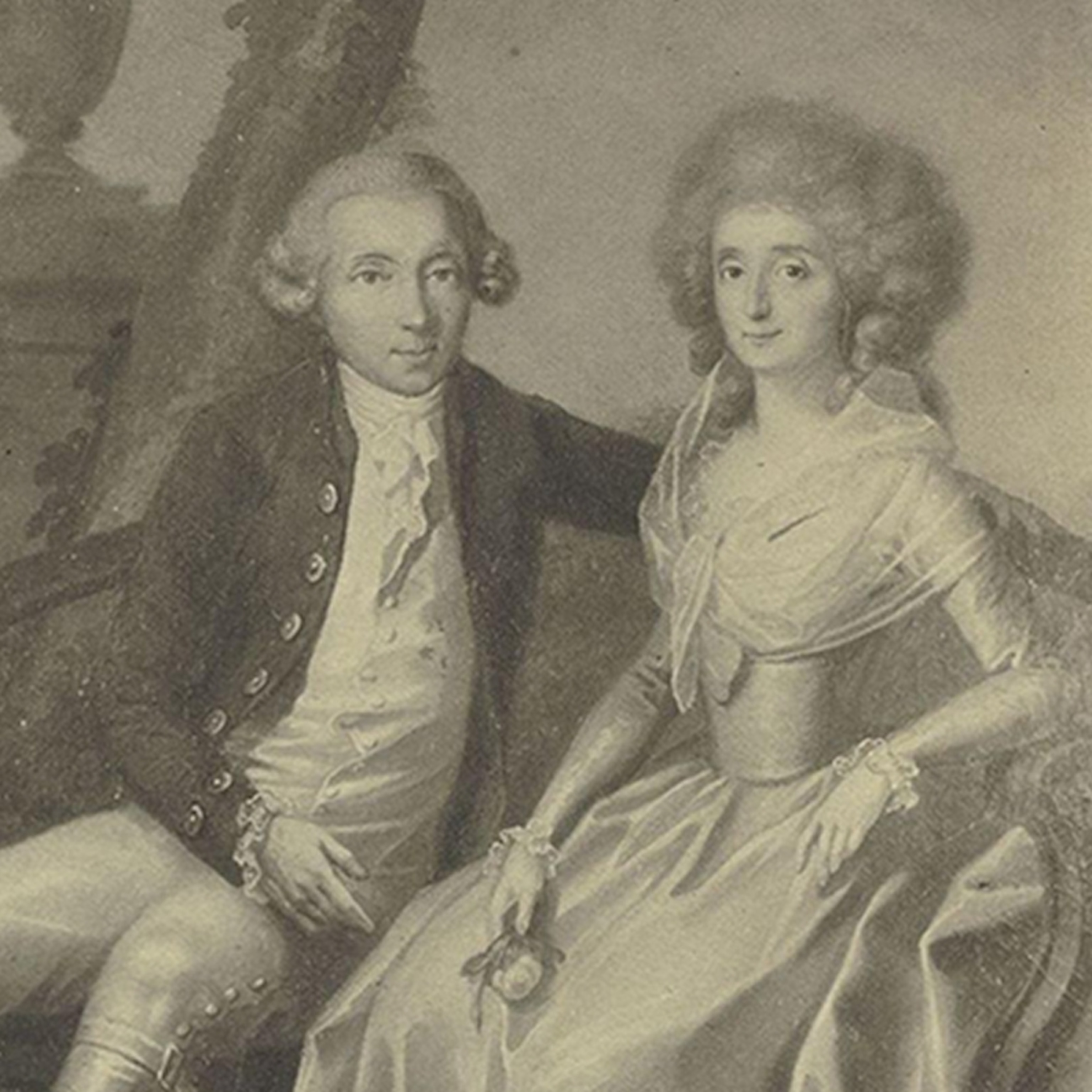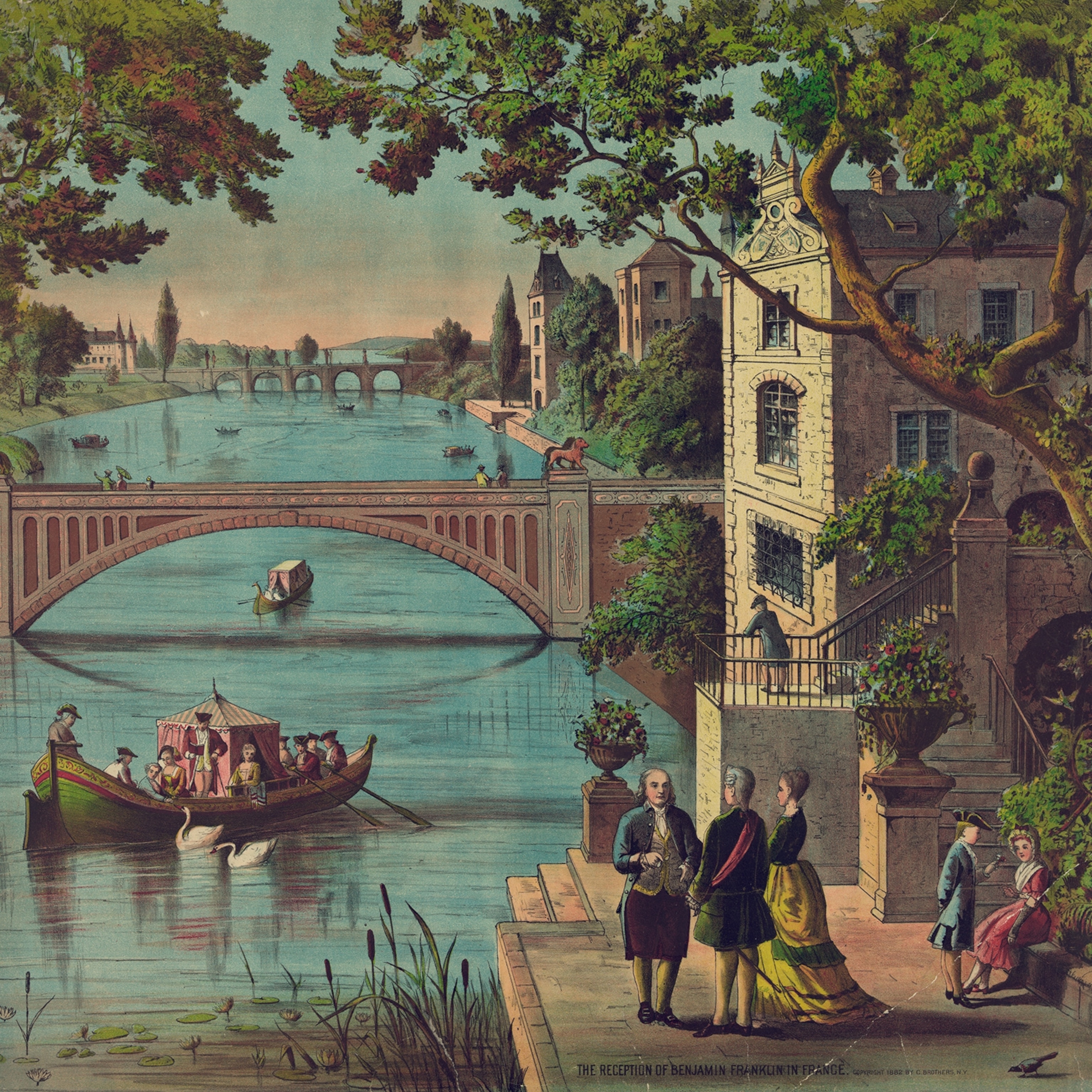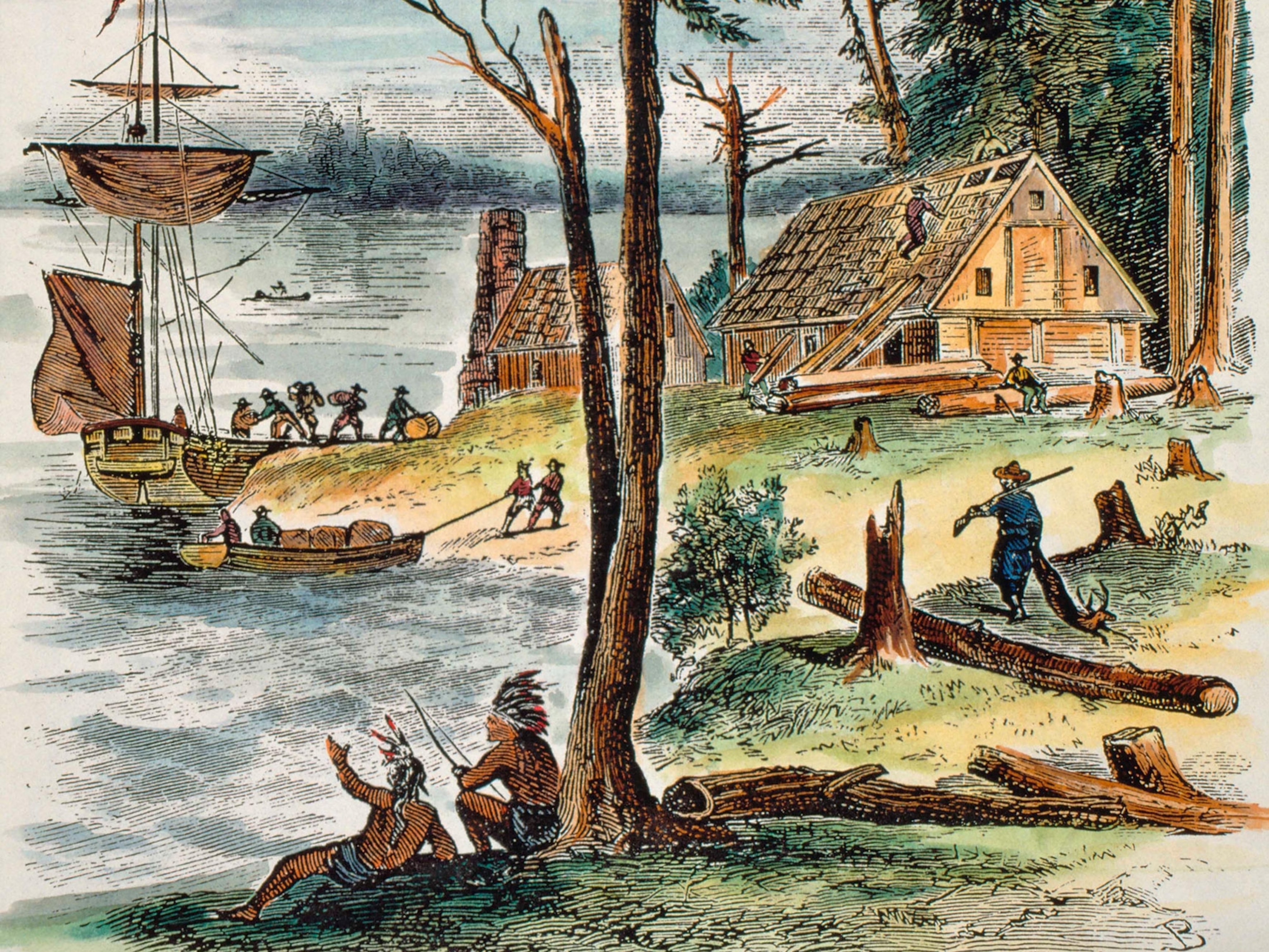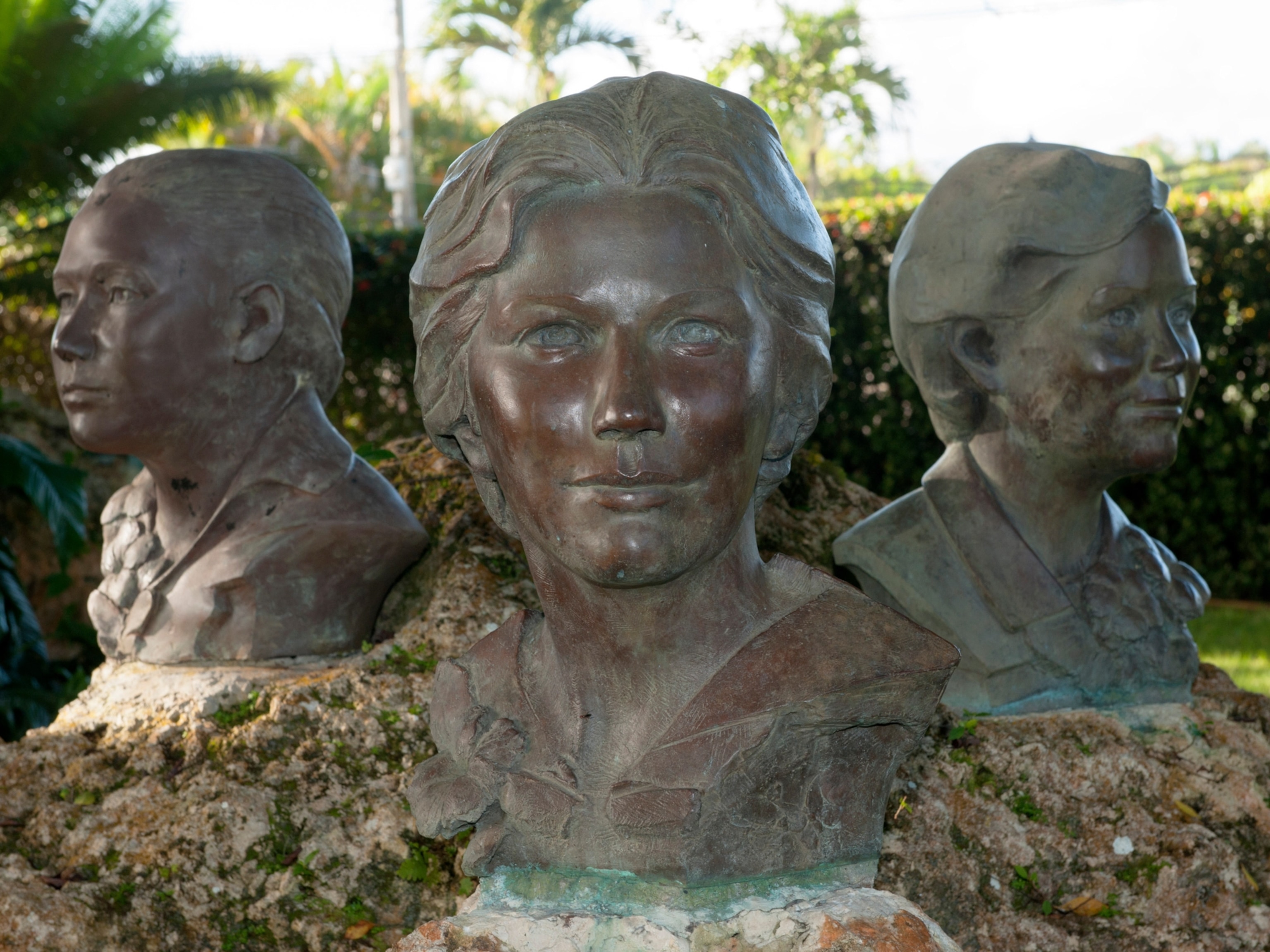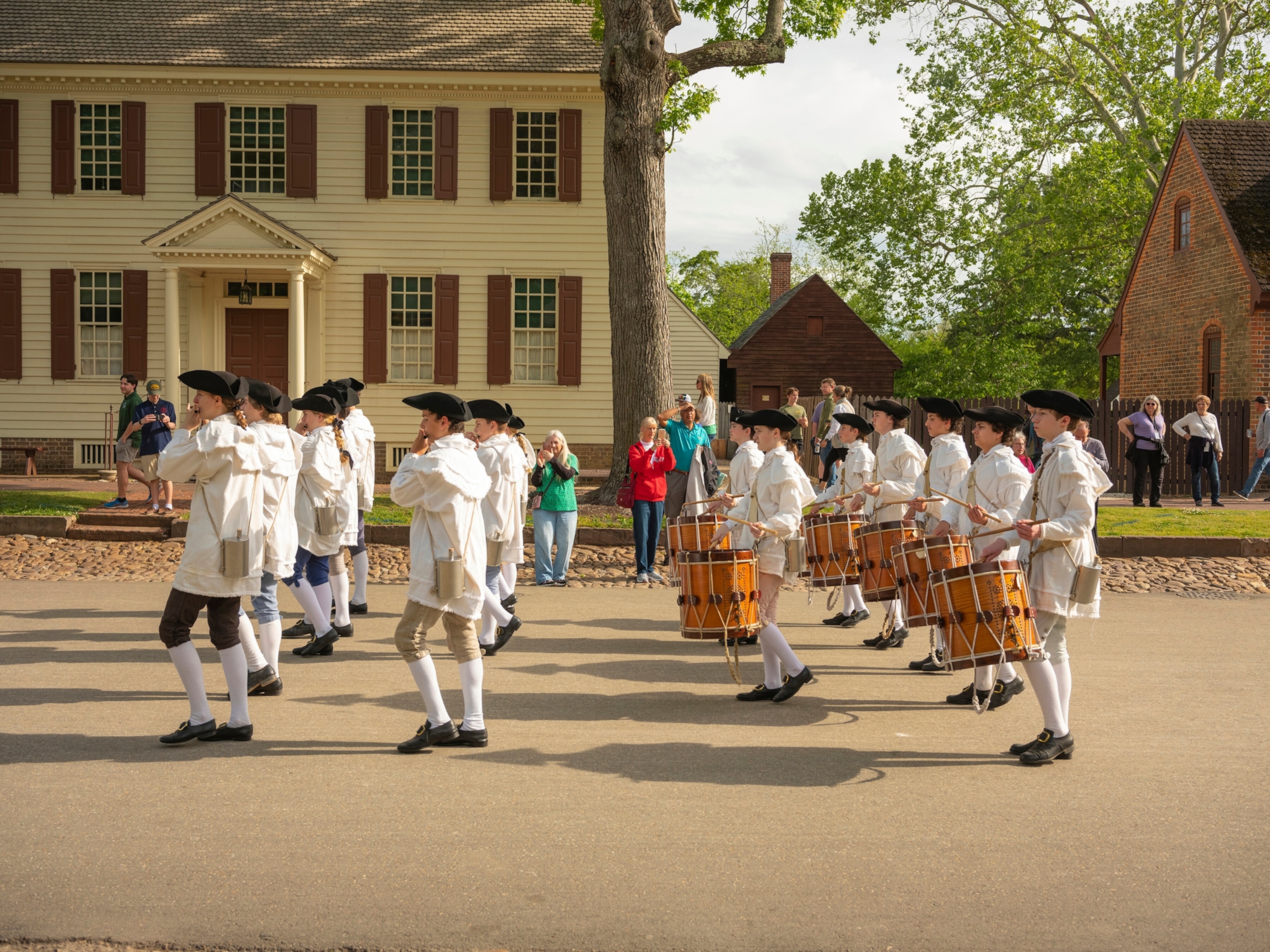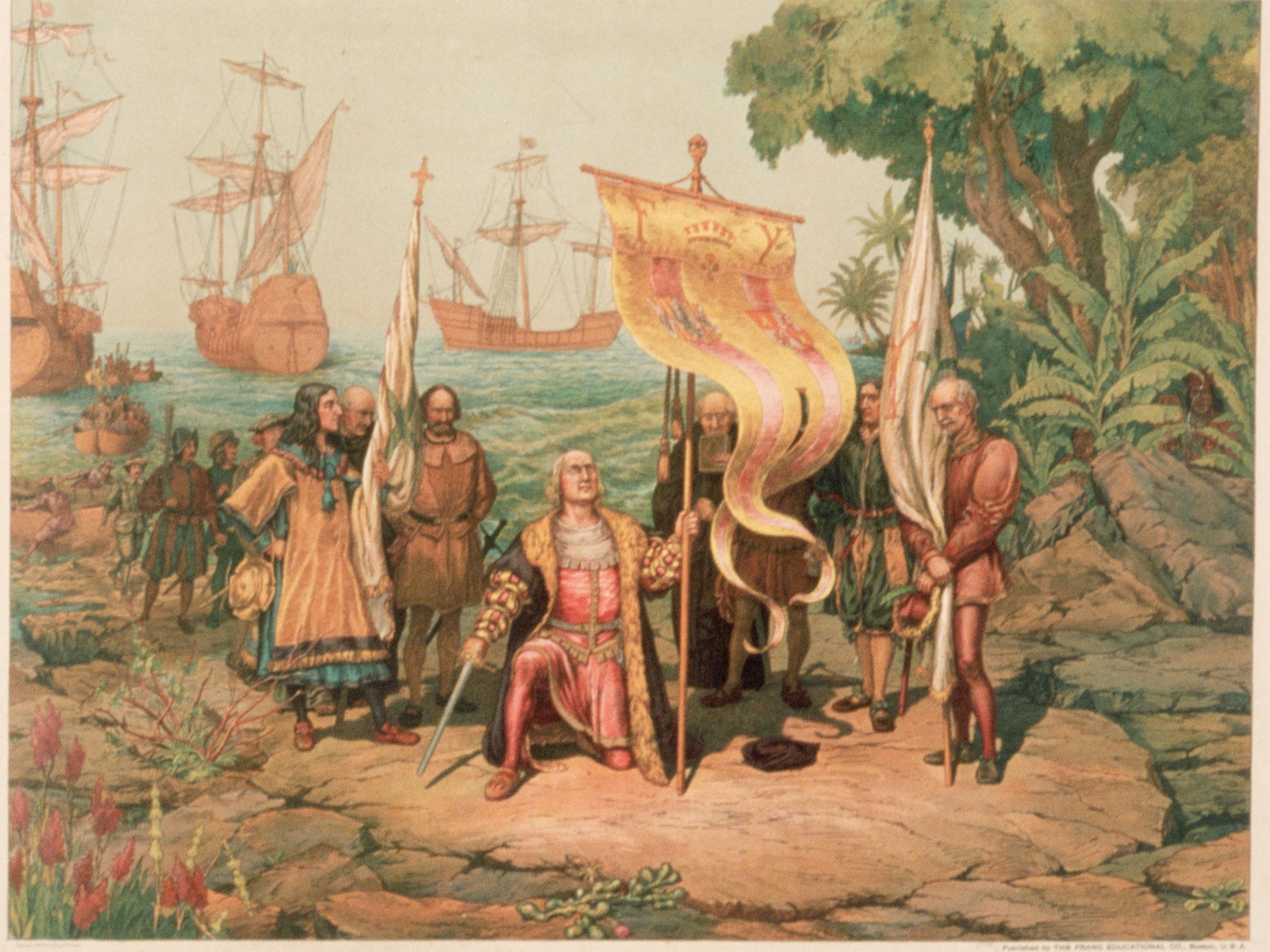He was a Founding Father. His son sided with the British.
Benjamin Franklin had an exceptionally close bond with his son—until the American Revolution pitted them against each other.
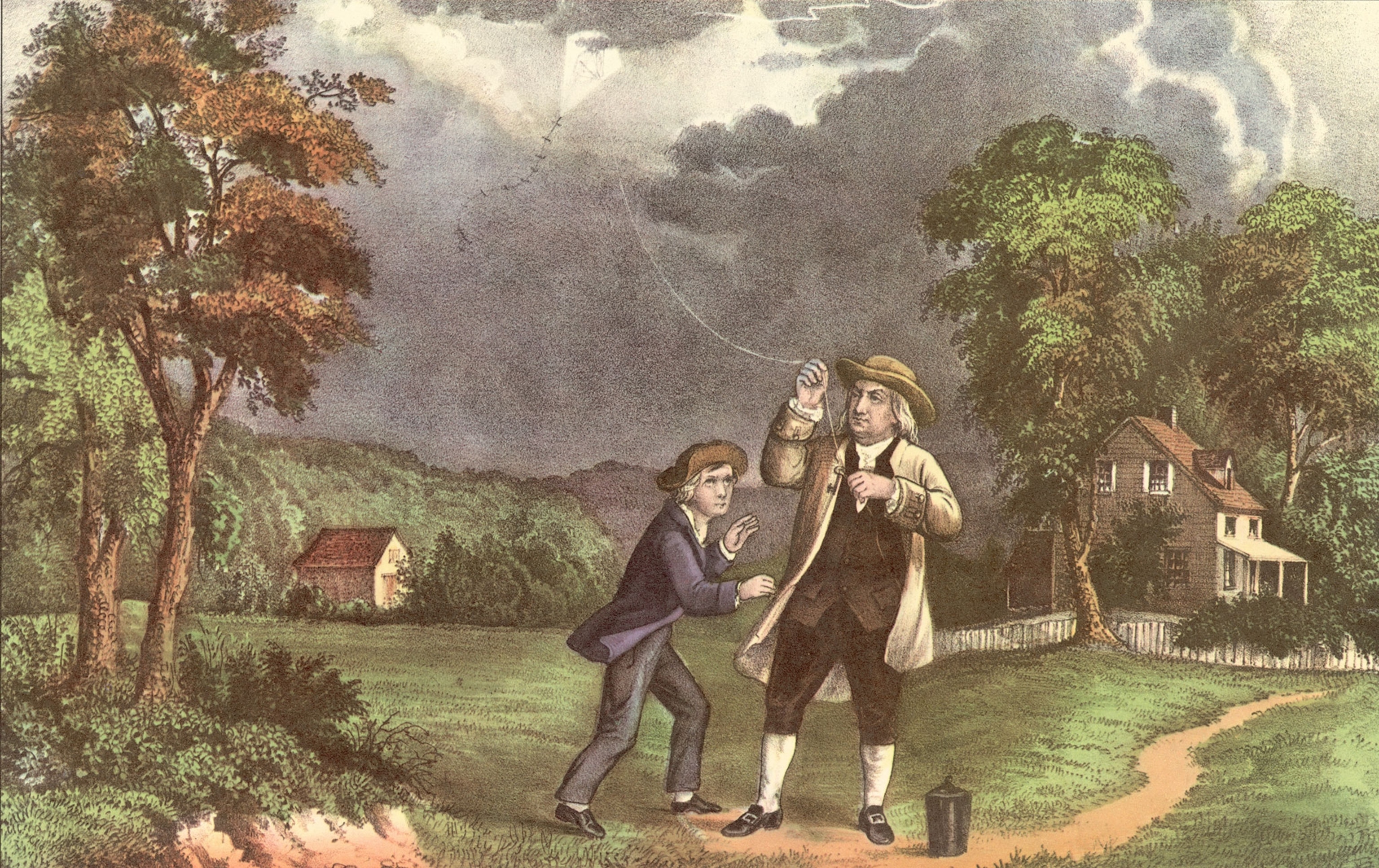
To generations of Americans, Benjamin Franklin is a Founding Father. But to William Franklin, his only surviving son, he was simply “father.” The two men had an exceptionally close bond, and Benjamin affectionately shepherded his son’s budding career.
Yet the very thing that cemented Benjamin Franklin’s legacy also threatened to destroy his relationship with his son. When the Revolutionary War broke out, Benjamin sided with the colonies––and William sided with the crown. Could their relationship survive the war?
An illegitimate child
Benjamin Franklin became a father when William entered the world sometime around 1730. The child’s exact birth date remains a mystery, as does his mother’s identity. There was a good reason for that: William was illegitimate. Benjamin was committed to raising his child and seeing to it that the circumstances of his birth would not define him.
Benjamin entered a common-law marriage with Deborah Read, his former sweetheart in Philadelphia, in 1730. Benjamin and William were a packaged deal, and Read had no choice but to accept her husband’s illegitimate son.
(Do you have a morning routine? Here's how Ben Franklin started his day.)
Two more children followed. Francis Folger Franklin was born in 1732, but tragically contracted smallpox and died when he was only four years old. In 1743, Deborah Franklin gave birth to Sally, a daughter. That made William his father’s only surviving male heir. And Benjamin had great expectations for him.
Sons of empire
Benjamin Franklin had been a self-made man, but he saw to it that his son wouldn’t have to be. He hired tutors to educate William from the age of four until he was old enough to go to an academy serving Philadelphia’s well-to-do families. Benjamin was preparing William to become a gentleman.
He also steered his son into a life of service to the colonial state. William served in King George’s War from 1746 to 1747 before taking on positions as a clerk in Pennsylvania’s colonial assembly and with the postal service.
Benjamin’s strong bond with his son only deepened as William grew up. William Strahan, a family friend, described William as his father’s “friend, his brother, his intimate, and easy companion.”
When Benjamin Franklin went to London in 1757, he brought his son with him. Benjamin would act as Pennsylvania’s colonial agent; William would study law. Together, they toured the country, made notable friends, and excitedly witnessed the coronation of King George III in 1761.
(The legacy of George III—the last king of America.)
The rising tide of revolution
When William Franklin returned to the colonies in 1763, he did so with a wife––Elizabeth Downes––and a new appointment: Royal Governor of New Jersey. He took his role seriously, applying his legal education to the administration of a British colony.
He governed New Jersey during a trying time. A series of taxes and policies provoked the ire of many colonists, whose calls for independence from the British Empire began to crescendo. Why should Parliament, an institution in which they had no direct representation, hold any authority over them?
William did his best to uphold the crown’s authority while also understanding colonists’ frustrations. But one man couldn’t hold back the tide of revolution.
As his son was managing an increasingly perilous political situation in New Jersey, Benjamin Franklin was navigating his own political firestorm in London. He initially hoped for a reconciliation between the colonies and Britain.
But Benjamin soon changed his tune. Disgusted with Parliament’s punitive response to the protests in the colonies, he now believed that the British government held his fellow colonists in “the utmost Contempt.”
Benjamin Franklin finally quit London in March 1775, just as relations between Britain and its North American colonies reached a breaking point. As his ship crossed the Atlantic in April, colonial militiamen and British regulars clashed at Lexington and Concord. The Revolutionary War had begun.
(What really happened at the battles of Lexington and Concord?)
A family war
The conflict pulled father and son apart. Benjamin was now an ardent patriot; William remained a committed Loyalist.
That didn’t stop Benjamin from attempting to convert his son to his cause. He even urged William to resign his position as royal governor. William refused. On at least one occasion, their discussion turned into a shouting match.
Finally, Benjamin accepted the bitter truth: William had declared his independence from his father, and so Benjamin was prepared to banish him from his life.
Indeed, William Franklin paid dearly for his loyalty to the crown. Though a well-liked governor, his popularity and family connections weren’t enough to shield him during the war. In 1776, he was arrested and imprisoned. Continental Congress, the governing body of the colonies during the war, didn’t even allow him to visit his wife on her death bed in 1778, despite a personal appeal from George Washington.
Benjamin Franklin did nothing to intervene.
A permanent rupture
The end of the Revolutionary War in 1783 didn’t end the estrangement between father and son. Exiled from the land of his birth, William relocated to England, hoping to rebuild his life among the friends he once had there.
He also hoped to reconcile with his father. In 1784, William reached out to Benjamin, who was in France on congressional business. He asked if it would be possible for them “to revive that affectionate intercourse and connexion which till the commencement of the late troubles had been the pride and happiness of my life.”
Benjamin wasn’t ready. “[N]othing has ever hurt me so much, and affected me with such keen sensations, as to find myself deserted in my old age by my only son; and not only deserted, but to find him taking up arms against me in a cause wherein my good fame, fortune, and life were all at stake,” he wrote William on August 16, 1784.
Benjamin Franklin finally agreed to meet his son in Southampton, England, in 1785. Yet when William arrived at the meeting place, any hope for a rehabilitation of their special bond was dashed. Benjamin asked his son to apologize for his Loyalism during the war; William would not.
They never saw each other again.

